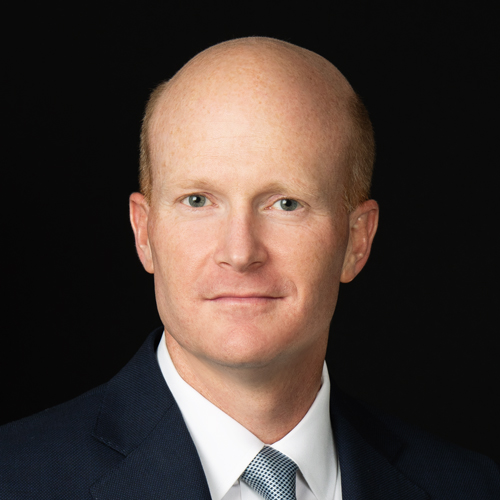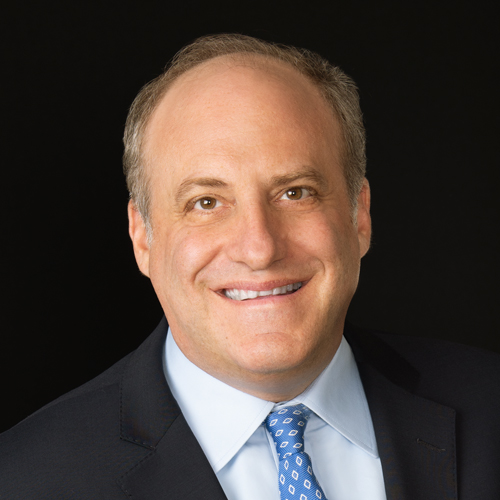We have previously looked at the many ways CARES Act funding can provide critical sources of money for both small and large businesses. We also have described the oversight bodies created by the CARES Act to police the use of disbursed funds. For many businesses, small or large, this may be the first time ever applying for and receiving federal dollars. Here is a guide to some of the key questions about the inherent risks and potential liability, both civil and criminal, that come with participating in this federal program.
For a small minority, the risks may be too great and may ultimately deter them from accepting a CARES Act loan; but for many businesses, a CARES Act loan may be the life raft they need to make ends meet during these difficult times. Because the government’s fraud recovery efforts will undoubtedly increase in coming years, businesses that accept CARES Act loans should be mindful of the potential liability that comes from accepting government funding.
What happens if the government later decides our company was not eligible to receive the funds?
The lack of clarity in eligibility requirements and evolving guidance by the Small Business Administration has caused considerable concern among borrowers, raising questions about whether companies should return funds already received. For example, among other requirements, applicants for the Paycheck Protection Program, which the CARES Act established for eligible small businesses, must certify that the “[c]urrent economic uncertainty makes this loan request necessary to support the ongoing operations of the Applicant.”
Guidance issued by the SBA on April 23, 2020 explained that “[b]orrowers must make this certification in good faith, taking into account their current business activity and their ability to access other sources of liquidity sufficient to support their ongoing operations in a manner that is not significantly detrimental to the business.” The SBA opined that “it is unlikely that a public company with substantial market value and access to capital markets will be able to make the required certification in good faith, and such a company should be prepared to demonstrate to SBA, upon request, the basis for its certification.” In its interim final rule issued on April 24, 2020, the SBA further addressed whether the SBA’s affiliation rules prohibit a portfolio company of a private equity fund from being eligible for a PPP loan. The SBA confirmed that “[t]he affiliation rules apply to private equity-owned businesses in the same manner as any other business subject to outside ownership or control.” The SBA concluded by reiterating prior guidance that “all borrowers should carefully review the required certification” concerning the necessity of the loan, which would include an assessment of their ability to access other sources of liquidity.
While confirming that “[b]orrowers and lenders may rely on the laws, rules, and guidance available at the time of the relevant application,” the SBA guidance also notes that “borrowers whose previously submitted loan applications have not yet been processed may revise their applications based on clarifications reflected in” the recent guidance. And for borrowers that already submitted a PPP application, but now believe they may not be eligible, the SBA also clarified that the borrower may repay the loan in full by May 7, 2020, and any prior certifications will be deemed to have been made in good faith.
Other borrowers, including those who acted in good faith when applying for funds and certifying their eligibility, and those who may be unable to take advantage of the PPP safe harbor, may need to move quickly once they know or should know that they received money for which they were not eligible. In other contexts involving federal funds, such as entities that receive Medicare or Medicaid payments, failure to timely report or return an overpayment may result in a violation of the federal False Claims Act, 31 U.S.C. § 3729 et seq., which carries the steep fines and penalties described below. From the government’s perspective, borrowers are expected to take care to assess and, to the extent possible, confirm their eligibility before applying for any CARES Act loan, and if it later becomes clear they were ineligible, they should take steps to mitigate their exposure, including potentially by returning any funds received.
What happens if the government decides we submitted false paperwork?
The FCA creates civil liability for any person who knowingly presents or causes to be presented a false claim for payment to the government. The FCA also proscribes knowingly making, using or causing to be made a false record or statement material to a false or fraudulent claim. For FCA purposes, “knowingly” can mean having actual knowledge, or acting in deliberate ignorance or reckless disregard of the truth or falsity of the information.
The potential for FCA liability stems in large part from the fact that the CARES Act requires prospective borrowers to make a variety of certifications that they meet loan requirements; this ensures that the FCA will be central to the government’s fraud enforcement and recovery efforts. In many cases, borrowers’ CARES Act certifications are being made on an expedited basis and without ready access to books, records and personnel, increasing the risk that misrepresentations will be made, particularly by borrowers largely foreign to accepting government funds and the documentation and recordkeeping requirements government loans entail. Nonetheless, the SBA’s April 23, 2020 guidance confirms that it is the borrower’s obligation to ensure its own eligibility for CARES Act loans and to provide appropriate and accurate certifications as to its eligibility.
FCA fines and penalties can be steep, as the FCA allows the government to recover up to three times the amount of its actual damages – with damages in this context likely viewed by the government as the full amount of the loan – plus penalties for each false claim of $11,665 to $23,331.
One reason the FCA has become such a powerful tool in the federal government’s fraud deterrence arsenal is its whistleblower provisions, which empower private individuals – often company employees – to bring suit on behalf of the government in exchange for a share of the government’s ultimate recovery.
What certifications do I need to be particularly careful about?
Nearly all of the loan programs set up by the CARES Act require some form of certification in order to receive funds and/or to retain them. Some of these certifications are objective and not likely to lead to FCA litigation, such as a certification that the borrower is domiciled in the United States. But others are ripe for FCA scrutiny. For example, the PPP promises to forgive a substantial portion of the loan principal, but loan forgiveness is subject to reduction if staffing and salary levels are reduced and not restored. Borrowers will necessarily present various certifications to the government regarding their initial eligibility for the loan, and subsequent certifications will require representations about, among other things, ongoing staff and salary levels. Both the initial and subsequent certifications will be subject to scrutiny and could prompt FCA liability if ultimately found to be untrue or misleading.
The CARES Act also authorizes funding for loans targeted at mid-sized eligible businesses and non-profits with between 500 and 10,000 employees, and requires that borrowers certify they intend to restore not less than 90% of the borrower’s workforce that existed as of February 1, 2020, and to restore all compensation and benefits to workers no later than four months after the declared termination of the COVID-19 public health emergency. There is no shortage of FCA pitfalls in these certifications; indeed, the government could make much of the borrower’s subjective mindset at the time it applied for the loan, or the applicant’s efforts, or lack thereof, to restore its workforce, compensation and benefits thereafter.
Can a company’s executives or owners be held personally liable?
Yes. The Department of Justice has been aggressively pursuing individuals in FCA cases. DOJ guidance issued in recent years requires that DOJ attorneys explore individual culpability in conducting their investigations; it also requires that, when deciding whether to award cooperation credit to corporations, DOJ attorneys consider the extent to which the corporation affirmatively identified the individual(s) responsible for the misconduct. In the case of a CARES Act loan, these individuals would include, but would not be limited to, the authorized representative of the company who signed the application.
Liability can extend to others in the business to include executives, owners and board members who participate in the decisions concerning the application and certifications. As a possible bellwether case, DOJ recently pursued a pharmacy’s private equity fund owner for allegations that it had engaged in a kickback scheme resulting in the submission of false claims. The private equity owner, two executives and the pharmacy at issue reached a $21 million settlement with DOJ in September 2019.
Can a company’s executives or owners face criminal exposure?
Yes, if they knowingly made false statements. In the wake of the 2008 financial crisis, for example, numerous executives faced harsh criminal penalties for fraud committed on federal loan programs, such as the Troubled Asset Relief Program (TARP). The Special Inspector General for TARP (SIGTARP), the independent watchdog set up to police TARP funds, reports that, as of December 31, 2019, it criminally charged 438 individuals, of which 300 were sentenced to prison time, including 92 bank borrowers and 76 bankers.
The potential for criminal liability stems from, among other things, strict federal statutes prohibiting the making of false statements in connection with loan applications (which includes CARES Act loans), i.e., 18 U.S.C. § 1014, and with making false statements to the government, i.e., 18 U.S.C. § 1001. Liability under either statute carries significant monetary penalties and potential jail time, and can stem from both “knowing” and “willful” misstatements. These are often unforgiving standards, and the government need only show that the defendant conducted a deliberate act, like submitting a loan application, with knowledge that its contents were false. And in certain circumstances, the government need not even prove that the defendant knew the statement was false; it must prove only that a defendant made a material false statement and acted with a conscious purpose to avoid learning the truth.
What can I do now to limit my exposure?
As we have previously reported, government enforcement often ramps up after national emergencies, and in these unprecedented times it is already well underway. On March 20, 2020, the DOJ announced that “Attorney General Barr [had] directed all U.S. Attorneys to prioritize the investigation and prosecution of Coronavirus-related fraud schemes.” Media and congressional scrutiny of CARES Act funding recipients will only serve to focus public and DOJ scrutiny.
Accordingly, now is not the time to skip important compliance safeguards. Any business applying for government assistance should exercise care to ensure:
- the accuracy of required certifications, and to know exactly what they are certifying;
- appropriate documentation exists to support the borrower’s initial certifications, compliance with the loan terms and any subsequent certifications and/or claims made to the government;
- public and internal statements by company representatives, including in SEC filings and to existing and prospective investors, for example, are consistent with representations made to the government;
- continued compliance with any follow-on requirements for retaining the loan, obtaining loan forgiveness or submitting subsequent certifications;
- internal compliance mechanisms (i.e., hotlines, auditing, etc.) are appropriately administered, funded, structured, staffed and maintained; and
- complaints or allegations of fraud are taken seriously and appropriately investigated – indeed, whistleblowers often report fraud internally before going to the government.
Contributors: Erin Estevez and Michael McMahon


